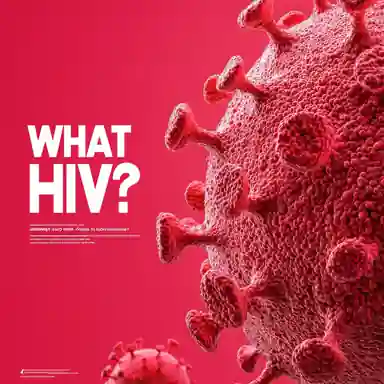December 1st: World AIDS Day. To promote accurate understanding and clear up common misconceptions about AIDS, we’ve summarized 10 key truths about HIV/AIDS that everyone should know.
1. What is HIV? Does having HIV mean you have AIDS?

No, having HIV does not mean you have AIDS. HIV stands for Human Immunodeficiency Virus, which attacks the immune system and weakens the body’s defense mechanisms. AIDS (Acquired Immunodeficiency Syndrome) is the advanced stage of HIV infection, where the immune system is severely compromised, making the body vulnerable to opportunistic infections and cancers.
For a deeper understanding of HIV, including symptoms and prevention, check out our blog: Understanding HIV: Symptoms, Prevention, and Treatment.
2. Can HIV be spread through handshakes or hugs?
No, HIV cannot be transmitted through casual contact like handshakes or hugs. The virus is present in bodily fluids like blood, semen, vaginal secretions, and breast milk. However, intact skin serves as an effective barrier, making transmission through casual touch impossible.
3. Can mosquito bites transmit HIV?
No, mosquito bites do not spread HIV. The virus cannot survive in a mosquito’s digestive system, and the tiny amount of blood remaining on its mouthparts is insufficient to cause infection in another individual.
4. Will an HIV-positive mother always pass the virus to her child?
Not necessarily. Without any intervention, the risk of mother-to-child transmission is 15%-45%. However, with proper antiretroviral therapy, safe delivery methods, and avoiding breastfeeding, the risk drops to below 2%.
5. Does having AIDS significantly shorten lifespan?
Not anymore. With effective antiretroviral therapy, individuals with AIDS can manage their viral load, maintain a healthy immune system, and significantly increase their lifespan and quality of life.
6. Can sharing utensils with an HIV-positive person spread the virus?
No, it cannot. The concentration of HIV in saliva is extremely low, and it is not enough to cause an infection. Additionally, HIV is fragile outside the human body and loses its infectiousness quickly.
7. Is AIDS a terminal illness with no cure?
While AIDS currently has no cure, treatments like antiretroviral therapy (ART) can suppress HIV replication, allowing individuals to live healthy and productive lives.
8. Can HIV be transmitted through kissing?
Generally, no. While trace amounts of HIV can be found in saliva, the concentration is too low to cause infection. However, if both parties have open sores or bleeding gums, the risk of transmission increases.
Before your next date, you might wonder: How Can You Tell If Someone Has HPV?
9. Can you contract HIV from a swimming pool or public bath?
No. Chlorinated water, disinfectants, and environmental factors render HIV inactive. Moreover, human skin acts as a protective barrier, further preventing the virus from entering the body.
10. Can HIV-positive individuals receive vaccines?
Yes, they can receive certain vaccines, like inactivated or protein-based ones. However, live attenuated vaccines should be approached cautiously due to potential risks. Always consult a healthcare professional for tailored advice.
In Conclusion:
Being diagnosed with HIV is not the end of the world. Although a complete cure remains elusive, early diagnosis, consistent treatment, and proper medication management can ensure a fulfilling life. By suppressing the virus to undetectable levels, individuals can work and live just like anyone else.
Join the PositiveSingles community, where you can connect with like-minded individuals from around the globe. Whether you’re a beginner or looking for advice, start with our guide: The Ultimate Guide for Beginners – Positive Singles.
